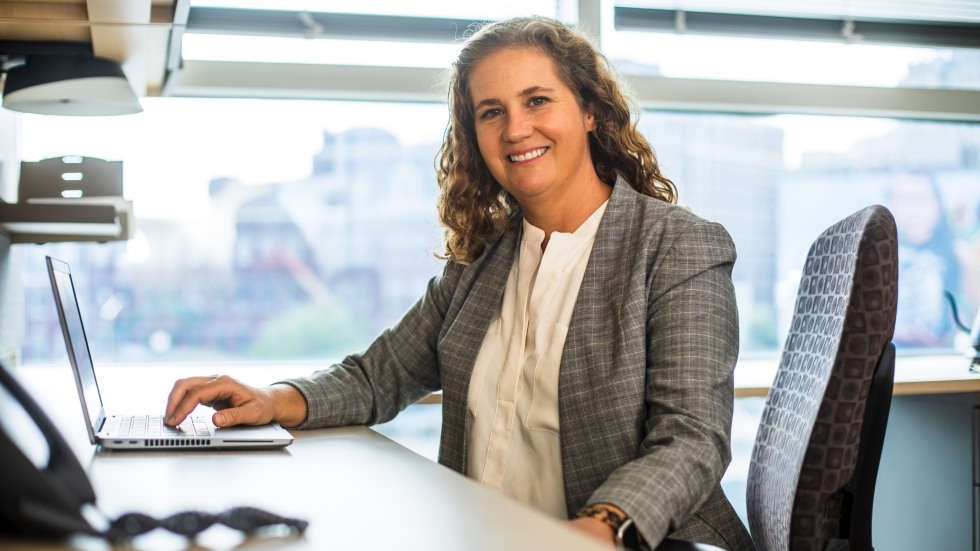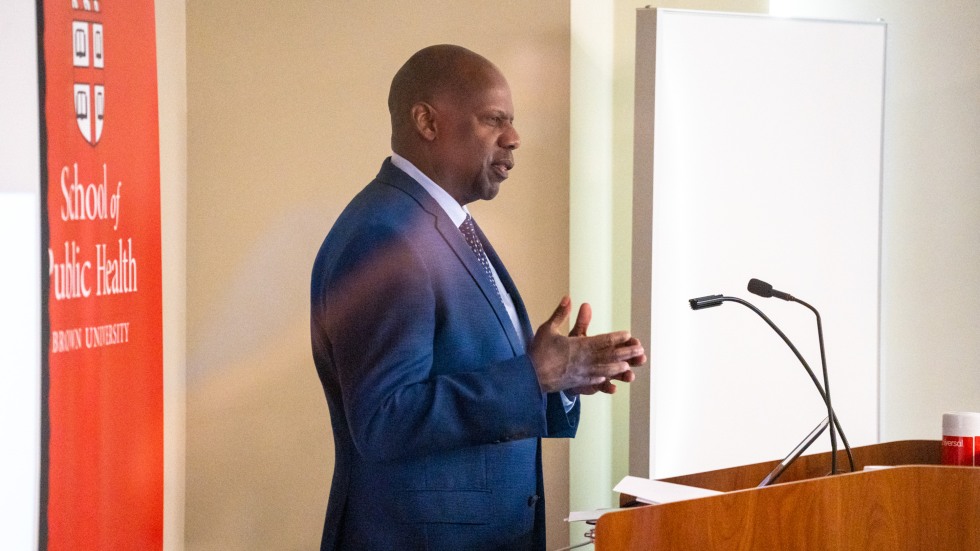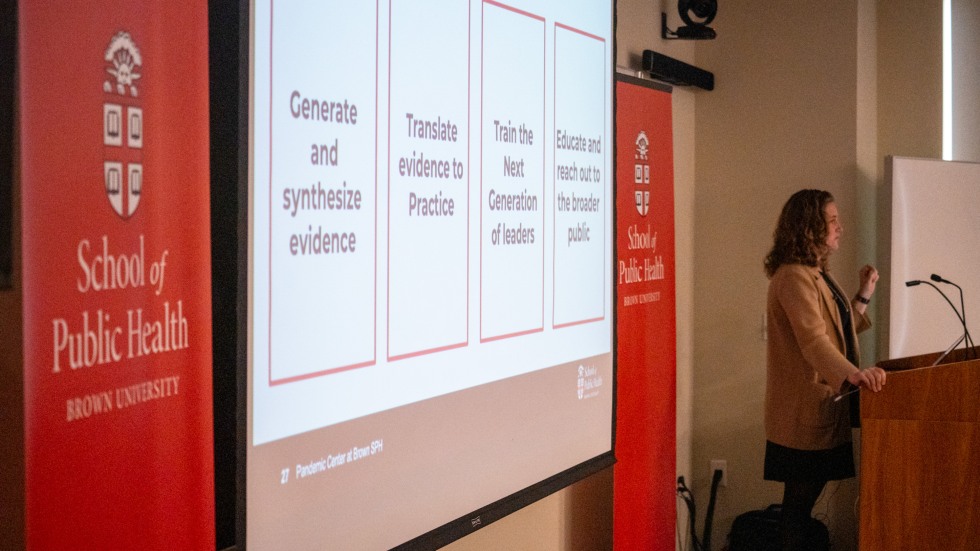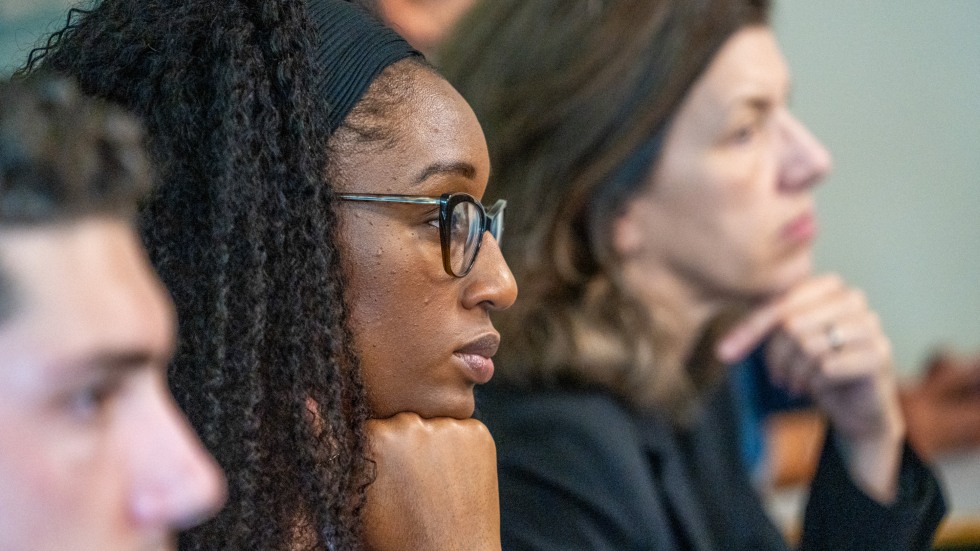The Pandemic Center celebrated its official opening on Wednesday, October 12 at the Brown University School of Public Health. The event demonstrated Brown’s commitment to recruiting national leaders who will advance the work of pandemic preparedness and expand the School’s impact on one of the most urgent public health and national security challenges of our time.
Interim Dean Ronald Aubert introduced Jennifer Nuzzo, founding director of the Pandemic Center and professor of epidemiology, and Beth Cameron, senior advisor to the Center and professor of health services policy and practice.
“When the Pandemic Center was proposed to the Academic Priorities Committee,” Aubert said, “everyone was excited: the life-sciences folks, the bio folks, but also unusual suspects from the history and classics departments who wanted to get involved in some way. It underlines how important this is.”
Professor Nuzzo, Aubert said, “is a big thinker, a comprehensive thinker, who works with a real sense of urgency.” She comes to Brown from the Johns Hopkins Center for Health Security where she served as senior scholar.
Nuzzo sounded the alarm on COVID-19 more than three months before the World Health Organization characterized it as a pandemic. On January 2, 2020, she and her colleagues reported an “Unknown Viral Pneumonia in China” through the Outbreak Observatory, a project she helped organize at the Johns Hopkins Bloomberg School of Public Health. The Pandemic Center at Brown will similarly practice ‘outbreak communications,’ informing public understanding at the local, national, and international levels about infectious threats around the world.
The Pandemic Center’s senior advisor, Professor Cameron, has worked at the highest levels of government, most recently as senior director for Global Health Security on the White House National Security Council. “Watching how the US dealt with the pandemic was an earth-shaker,” Cameron said. “It was a recognition that we need to get out in front of pandemic threats and translate pandemic risk into public action.”




